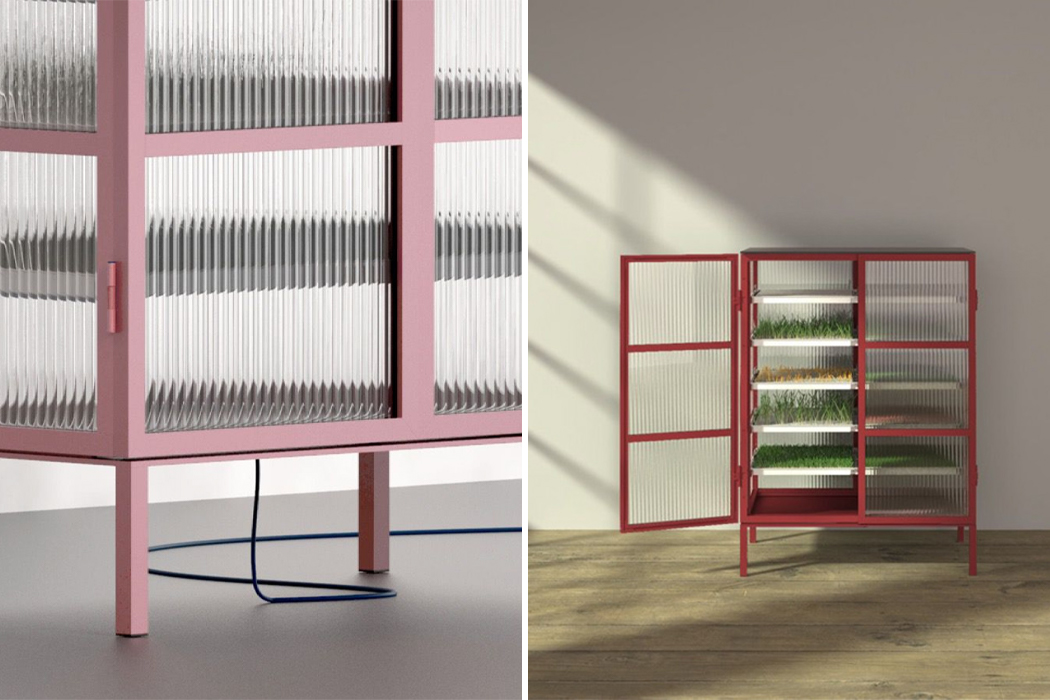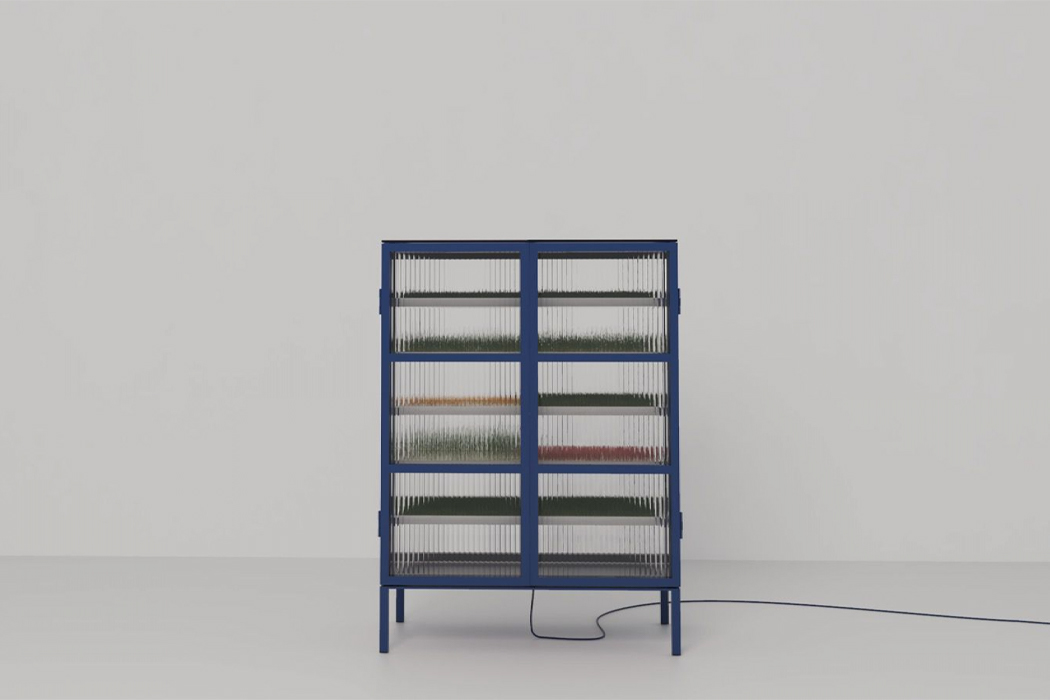
Since 2013, the Green Concept Award has functioned as a platform for networking and been awarded to designers who have made globally sustainable and innovative products. The awards recognize products already on the market or in their conceptual stages that stand out for their design, innovation, and commitment to sustainability. Each year, the Green Concept Award jury members finalize a pre-selection list before awarding the winning product with the year’s title. One of the products on 2021’s pre-selection list is Farmhouse, a hydroponic vertical farm conceptualized by designers at Kingston University’s School of Art.
Hydroponic vertical farming is a form of farming that ditches the need for soil, substituting in different root-supporting materials like peat moss or Rockwool, allowing plants to grow in nutrient-rich water. The five-tiered Farmhouse is stocked with trays that contain all the materials necessary for optimal hydro-plant growth, like filtered, nutrient-infused water, oxygen, and root support.
Additionally, the vertical farm comes equipped with bright lights, either LEDs or HIDs, to replace the natural sunlight outdoors so that each plant can receive special lighting according to its own Daily Light Integral (DLI). Hydroponics is a sustainable farming practice for many reasons, but a significant one might be that by tending to a hydroponic farm, like Farmhouse, crops can be grown anywhere, during any time of the year.
The food we eat on a day-to-day basis travels about 1,500 miles before reaching our plate. While picking produce up at the supermarket seems simple, a lot of pollution takes place behind the scenes, all before hitting the shelves. Delivering produce to grocery stores across the globe requires lots of plastic packaging and plenty more fuel for transportation, increasing levels of microplastic and air pollution in the process. The designers behind Farmhouse aim to cut those unsustainable practices by designing a hydroponic farming solution that can be used in any home, during any season.
Designer: Kingston University (Kingston School of Art)

The five shelves of the Farmhouse contain all the necessary materials required for hydroponic farming.
Outfitted with shelves, Farmhouse grows crops using metal trays that guide the plant’s direction of growth.
A water system, filter, and root-support material all work together to help produce crops through hydroponics.
Without the convenience of natural sunlight, hydroponic farming relies on LEDs and HIDs to feed crops with light.
Thanks to a ribbed glass pane and warm color scheme, Farmhouse can fit into any room.
Coming in denim blue, moss green, rose pink, scarlet red, and blonde yellow – the Farmhouse also comes with a simple frame and intuitive build.
A raised top shelf feeds the plants inside the Farmhouse with plenty of airflow and oxygen.